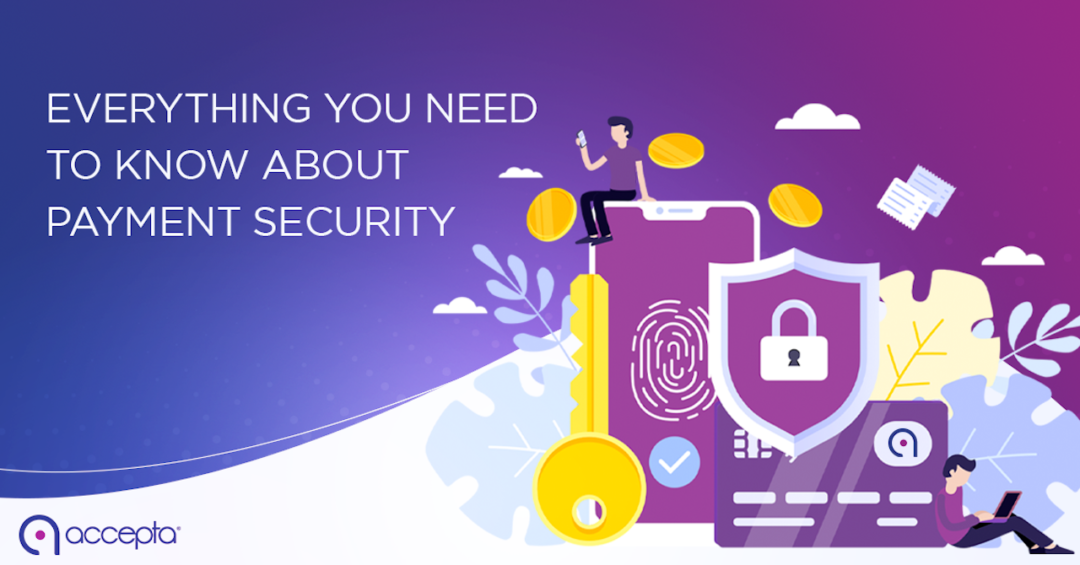For years, one of the largest concerns for businesses in all industries has been, and still is, payment security. Cardholder data is still susceptible to breaches and requires intense regulations that control how said data is stored, transmitted, and processed.
In order to help business owners fully understand the complexities of payment security, in this article we’ll explain important topics related to it.
PCI Compliance
The Payment Card Industry Data Security Standard (PCI DSS), also known as PCI Compliance Standard, refers to the guidelines necessary to ensure proper payment card security.
The exact requirements can vary from business to business, and are determined by the volume of transactions performed, which is referred to as the PCI Level. Merchants across the globe are expected to adhere to these guidelines, and need to implement the appropriate tools, applications, and strategies that best fit their business in order to become and remain compliant.

Security features that help protect your business
As stated in the previous section, security requirements can vary depending on the type of business, and not every method that works for brick-and-mortar retail will prove secure enough for online stores, or vice versa.
Thankfully, there are many payment security options to choose from, and in order to simplify the selection process, here is a list of 6 security features that can help protect your customers’ cardholder data:
- Tokenization
This method hides cardholder data (card numbers, bank account numbers, etc.) by replacing it with tokens. These tokens are simply random characters that are useless to hackers, and can therefore be transmitted safely, preventing breaches in security.
- 3D Secure
The Three Domain Secure protocol (also known as 3D Secure or 3DS), is particularly useful for high-risk payment transactions, and adds an extra layer of security to eCommerce/online businesses by requiring customer authentication via password or security code. The merchant, card network, and financial institution will then corroborate the information, determine potential risks, and finally, either process or reject the transaction.
- Two-Factor Authentication
Two-Factor Authentication (2FA), and sometimes Multi-Factor Authentication (MFA), are another couple of potential security protocols that can be implemented during payment transactions. Both methods ask cardholders to take several extra steps during the authentication process, such as security questions, one-time passwords, security codes, etc.
- Data Encryption
Data encryption consists of turning sensitive data into a code during online transactions, preventing unauthorized access. This particular form of payment security is vital to any infrastructure, and secure sites can be recognized by a lock symbol and HTTPS (Hypertext Transfer Protocol Secure) appearing on the address bar.
The most widely used protocols within data encryption are Secure Sockets Layer (SSL) and Transport Layer Security (TLS).
- Card Verification Value
The Card Verification Value (CVV) is the code on the back of your card used to authenticate card-not-present transactions. Merchants shouldn’t solely rely on CVV codes, however, as they’re still more susceptible to fraud than most of the previously mentioned methods.
- Address Verification System
The Address Verification System (AVS) verifies transactions by assessing the billing address provided by the customer to the address saved on file at the card-issuing bank, preventing fraudulent transactions and the use of stolen or unauthorized cards. This is a very common method of authentication used by online/eCommerce merchants and payment gateways.

Building a payment security strategy
In order to build an effective payment security strategy, evaluate the security tools and information provided above, and consider the needs of your own business. Different merchants from varying industries will each have different security needs.
That being said, a well rounded strategy is always preferable! Minimizing risk and vulnerability is a priority, and Accepta offers a wide variety of platforms and tools that implement the previously discussed features. Save effort and money by implementing Accepta’s simple, secure, and reliable payment solutions into your business. Contact us for more information: (787) 774-1555 or visit acceptapayments.com

